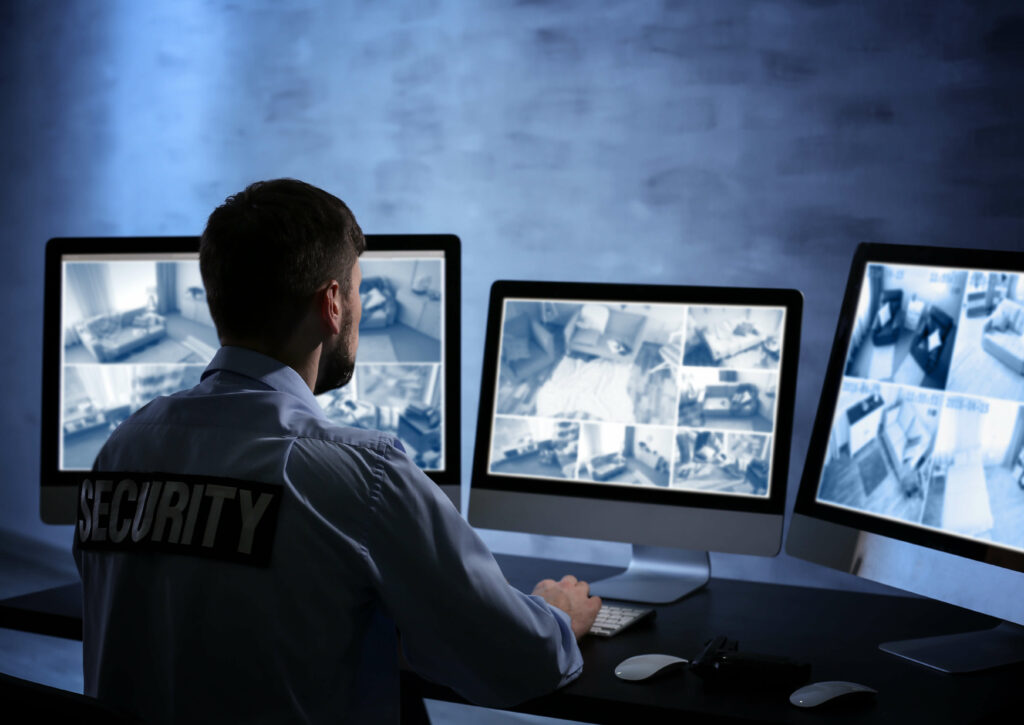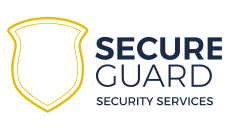7 Ways Hospital Security Guards Help Ensure Safety & Security - Secure Guard
- Home
- Business Protection
- 7 Ways Hospital Security Guards Help Ensure Safety & Security

- April 02, 2019
- By secureguard
Like businesses, commercial properties and religious places, hospitals, and other medical centers have their own share of security concerns. In fact, they have unique threats than other public institutions.
Their open door environment makes them vulnerable to crime and violence from visitors, patients, and occasionally their own staff. They are an attractive target for the burglars for their drugs and expensive medical equipment.
Violence or aggression from the patients or visitors is not so uncommon. It is not easy to identify or track the malicious person in the sea of people, however, it is preventable with the presence of a security guard.

Hiring a team of proactive healthcare security guards is an answer. Here is how they ensure security and peace of mind to the healthcare industry.
1. ENSURING SECURITY IN THE MOST VOLATILE AREAS
Some hospitals contain high volumes of patients that potentially create a chaotic environment. For example, a psychiatric unit houses the patients who can act out without warning. Even worse, they can attack the nurse or visitors in a fit of madness. It is also the reality that many mentally disturbed patients have a suicidal tendency, meaning that they can harm themselves too.
That’s why security guards should be deployed in such areas for the safety of visitors, healthcare professionals, and patients.
2. PROVIDING GUIDANCE AND CUSTOMER SUPPORT
Apart from doing their official duty, security guards are known for providing customer support. They can guide visitors to the correct department. They can help someone find their vehicle in larger parking lots. Besides, they help caregivers or families take elders or critically ill patients in the treatment room. A security guard may help visitors and guide them with filling out their paperwork. They also assist disabled or elderly patients.
3. CONTROLLING THE ACCESS TO SENSITIVE AREAS
A hospital is supposed to be open for all visitors in order to function. And this open nature of a healthcare facility increases the risk of visitors accessing unauthorized areas. Keep in mind that controlled access is one of the pillars of a safe hospital environment.
A security guard plays an important role in this context. He routinely checks IDs or badges to ensure a patient, visitor or physician are where they are supposed to be. For example, a patient is not allowed to access a room that stores lab samples and personal records or high-risk wards. They can minimize the risk of patients or visitors going to “off limits” zones by cutting back on that area being open to the visitors. Besides, they can put access card readers on the locked doors and take charge of the doorways that lead from one area to another.

A security guard plays an important role in this context. He routinely checks IDs or badges to ensure a patient, visitor or physician are where they are supposed to be. For example, a patient is not allowed to access a room that stores lab samples and personal records or high-risk wards. They can minimize the risk of patients or visitors going to “off limits” zones by cutting back on that area being open to the visitors. Besides, they can put access card readers on the locked doors and take charge of the doorways that lead from one area to another.
4. ENSURING FIRE SAFETY
Hospitals are prone to fire breakouts as they house volatile chemicals, complicated electrical equipment, oxygen cylinders, and combustible gasses.
Any misuse or mishandling can lead to fire breakout in the premises and therefore, securing doctors, patients and all other staff members become important. This is even a critical situation with the patients struggling with mobility.
Security guards help healthcare facilities detecting and suppressing a fire. They are likely to be the first responders at the scene of a fire.
They can watch for potential fire hazards like spark or heat from electrical equipment or storing of combustible substances near heat sources while patrolling.
Besides, they can inspect fire extinguishers to check for their expiry dates or damages. In case of a fire breakout, they report the incident to the fire department. If a fire spreads beyond control before the arrival of the firefighters, they can control the crowd and help the patients locate to safe areas.
5. PREVENTING THEFT, VIOLENCE, ABDUCTION AND OTHER CRIMES
Most of the readers out there must be familiar with the typical crimes committed at healthcare facilities. Attacks on nurses are far too common while infant abduction is another crime that grabs headlines. The list of crimes at hospitals also includes drug theft, gun violence, and inmate escapes. An efficient and adequate security system in place ensures the prevention of such crimes. Security guards monitor each and every area and catch hold of any malicious activities. Even their presence is enough to deter potential criminals. Besides, it ensures peace of mind and a sense of security to the staff, patients, and visitors.
6. MAINTAINING THE ORDER
The hospitals are crowded places with the swarms of patients, nurses and other medical professionals rushing here and there as the physicians are in a hurry. All this leads to a stressful environment characterized by noise and din. This will add to the anxiety of already stressed patients and their family members. It requires hospital administration to bring in proactive guards to handle the crowd and traffic problems as well. Besides maintaining the order, they can handle arguments, disputes, and fights stemming from such stressful situations.
7. DEALING WITH ANGRY PATIENTS
You never know how a patient reacts on learning about his severe health conditions. Some patients can’t hold their strong emotions back and may lash out in anger. They can even resort to physical violence. This way, they can pose a threat to their doctor, patients, and visitors.
A trained healthcare security guard knows how to calm down such people. They can handle the situation by speaking calmly, understanding the person’s feeling and suggesting them the options. If this strategy doesn’t work, they can safely evacuate the angry person from the property.
The points mentioned above show how healthcare security guards can benefit a medical setting. Want to ask anything else? Please send over a message.
To hire security guards in the Southern California region, please contact Secure Guard Security Services at 888-908-7818 or email at [email protected]



